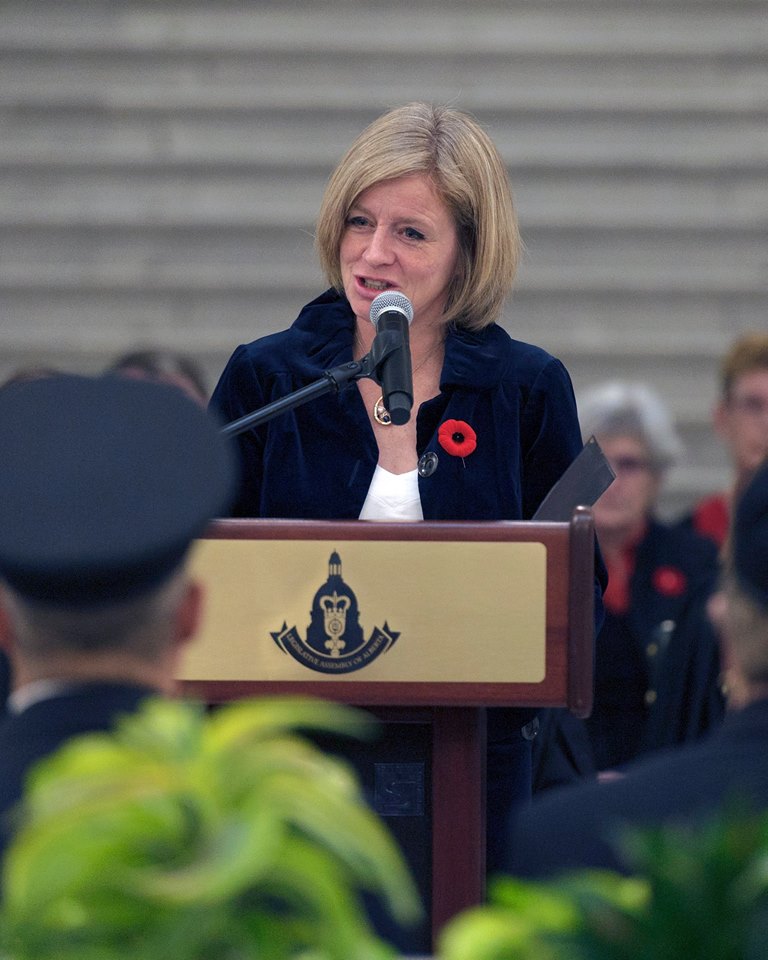Canada News
Legal pot could see justice costs climb, not drop, Alberta’s Notley says

The justice system is already overburdened and enforcing new pot-related measures could make things worse, Rachel Notley warned in an interview with The Canadian Press. (Photo: Rachel Notley/Facebook)
OTTAWA — Alberta’s premier says she’s worried that marijuana legalization could drive up policing and court bills her province cannot afford to pay.
The justice system is already overburdened and enforcing new pot-related measures could make things worse, Rachel Notley warned in an interview with The Canadian Press.
Notley said she was surprised by the recent federal proposal to levy an excise tax on recreational marijuana once it becomes legal next July, with the provinces and territories receiving just half the revenue.
Alberta and other provinces have already expressed displeasure about the sharing plan, saying they should get the bulk of the revenues to cover their costs. The issue will resurface at a meeting of federal, provincial and territorial finance ministers next month.
It is not reasonable to make the provinces do most of “cost-based heavy lifting” on implementing the new cannabis regime “with only a portion of the taxation,” Notley said.
The federal government says legalizing recreational use will help keep marijuana out of the hands of young people while denying profits to criminal organizations. But it acknowledges the need to train and equip police to better deal with the phenomenon of drugged driving.
The Trudeau government has earmarked just over $274 million to support policing and border efforts associated with legalized pot, with some of the money to be made available to the provinces.
There are still many unanswered questions, including around enforcement, Notley said.
“The issue with enforcement is if we don’t get it right what we do is we drive up policing and court costs quite significantly,” she said.
“The justice system is stretched, and so to inject something like this in without a clear understanding of how we’re going to prosecute those things that we’re being asked to enforce could really drive a lot of costs.”
In response to Notley, Liberal MP Bill Blair said Wednesday that the advent of a new approach will also mean cost reductions.
“We know that each year, tens of thousands of people are charged with simple possession of cannabis,” Blair said in an interview. “Those charges will come out of the criminal justice system.”
Ottawa will closely monitor the cost impacts of legalization, said Blair, parliamentary secretary to the justice and health ministers.
“I think there is a very real possibility of savings but we also know it requires investment in oversight and administration and, where appropriate, enforcement,” Blair said.
“That’s part of the ongoing work that we’re doing with provinces, territories and municipalities to make sure funding is available.”
At the same time, cannabis producers are seeking clarity on future regulations for the recreational pot regime, noting they need to make critical decisions now on everything from fonts to layout for future packages.
The federal government released a nearly 70-page consultation document late Tuesday that shed more light on proposed regulations including strict limitations for colour, graphs and font size for products.
Canopy Growth Corp. president Mark Zekulin said Wednesday his company is already preparing mock-ups for products ahead of marijuana’s legalization, adding that key details remain unknown. The lack of information means the company has to play a guessing game, he said.
“If you had all the information now, you could prepare a jar, for example, with elements already pre-printed on it,” Zekulin said.
“These are the choices that we will need to make and frankly we’ll still need to make them now, there will just be a lot of risk that we make the wrong choice.”
In its consultation document, Health Canada also proposed mandatory health warnings similar to those on tobacco products.
The document will be open to public input for 60 days.
A Health Canada official said Wednesday the department is looking at creating standardized requirements for all packages and labels for cannabis products while it also allows the industry some space to provide consumer information as part of efforts to undercut the black market.
The department’s goal is to publish an additional document by winter to summarize the key results of the consultations and provide details in areas including packaging and labelling, the official said.





















